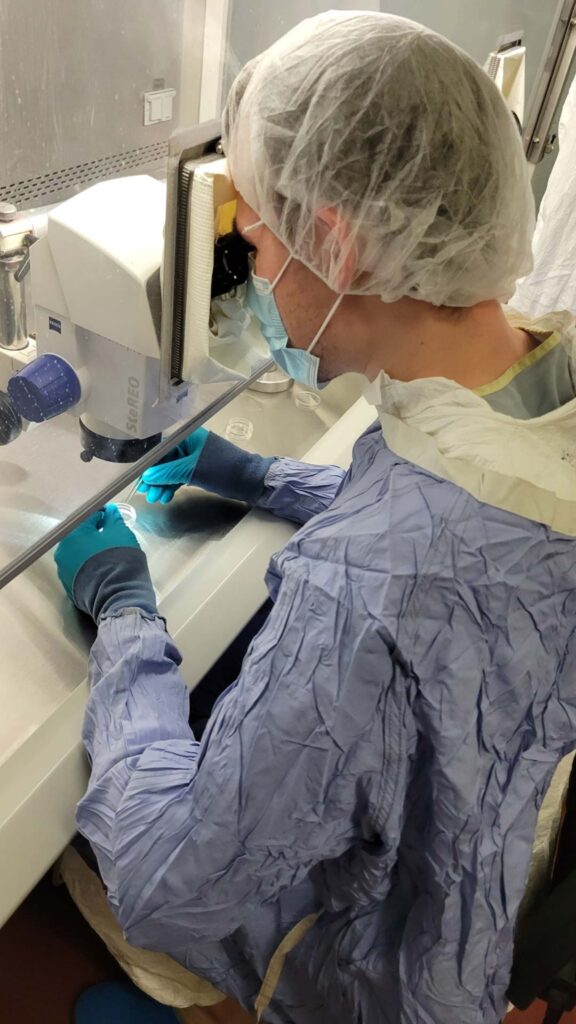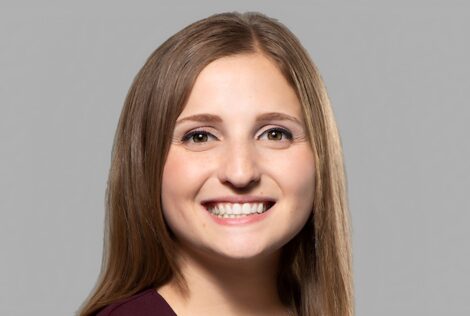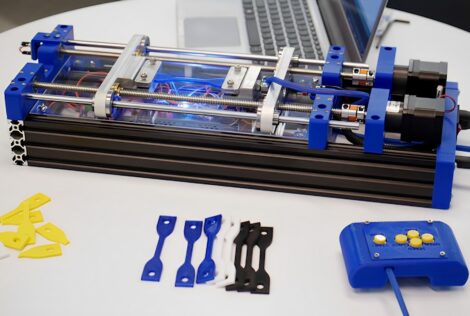

The Faculty of Engineering congratulates 2022 Vanier Scholars Kyle Jackson and Ahmed Moussa, who have been awarded funding for their research into bacteriophage therapy to treat colitis and resilience of infrastructure networks under climate change, respectively.
The Government of Canada has named two Faculty of Engineering doctoral students at McMaster University among the 2022 Vanier Scholars
Ahmed Moussa and Kyle Jackson were listed among 166 recipients of the highly prestigious scholarship program in the country for PhD students. Seven of the scholars announced were from McMaster University.
The scholarship program provides funding to world-class doctoral students in the social sciences and humanities, natural sciences and/or engineering and health.
Valued at $50,000 per year for three years, the scholarships are distributed through the Canadian Institutes of Health Research, Natural Sciences and Engineering Research Council, and Social Sciences and Humanities Research Council.
Ahmed Moussa, Civil Engineering
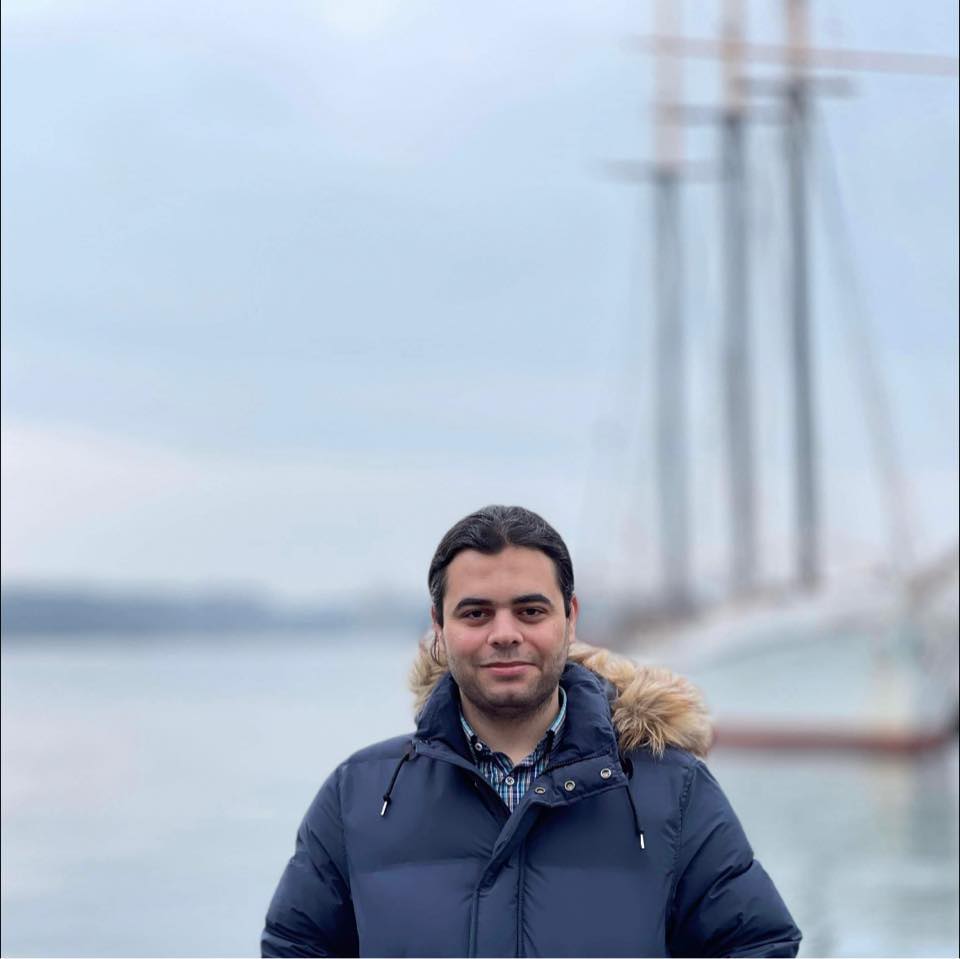
Ahmed Moussa’s research focuses on developing decision support systems to help mitigate the impacts of climate change on our critical national infrastructure network.
Against a background of a rapidly changing climate and its unpredictable impacts, Moussa explained the nation’s infrastructure is declining in its performance over time. Meanwhile, a limited budget restricts what can be fortified.
The interconnectivity of Canada’s infrastructure network – telecommunications, water, electricity, transport, healthcare and more – poses the possibility of cascading failures.
An extreme weather event, like a flood or windstorm, that destroys one system in the network may ultimately result in multiple failures at once, Moussa explained.
A choice, he said, needs to be made.
“We need to optimize our spending to know which critical assets and which infrastructure systems we should prepare to mitigate,” he said.
His research will develop and integrate a set of complex network dynamic simulation tools, artificial intelligence algorithms and climate change model predictions.
Born in Egypt, Moussa gained insight into infrastructure systems at German University in Cairo (GUC) and at the University of Stuttgart in Germany.
In pursuing education in Germany, Moussa said he developed consciousness on appreciating differences between cultures and on “emphasizing the connections between people.”
He arrived in Canada for his PhD studies and he has been working under Wael El-Dakhakhani and Mohamed Ezzeldin. Moussa is the third student that El-Dakhakhani has supervised to achieve the scholarship in the past three years.
“I really have profound gratitude for the support of my amazing supervisors,” he said.
Moussa also expressed gratitude for the support of his family, especially his mom, as well as his colleagues at McMaster University.
“I am totally thrilled and honored to receive such a prestigious award … it is amazing news for me,” he said.
We live in an interconnected world. We need to emphasize this interconnectedness and its impact on our life…we need to use it as an advantage in facing the risks or hazards imposed by climate change to improve the quality of lives and help the communities at risk in Canada.
Kyle Jackson, Chemical Engineering
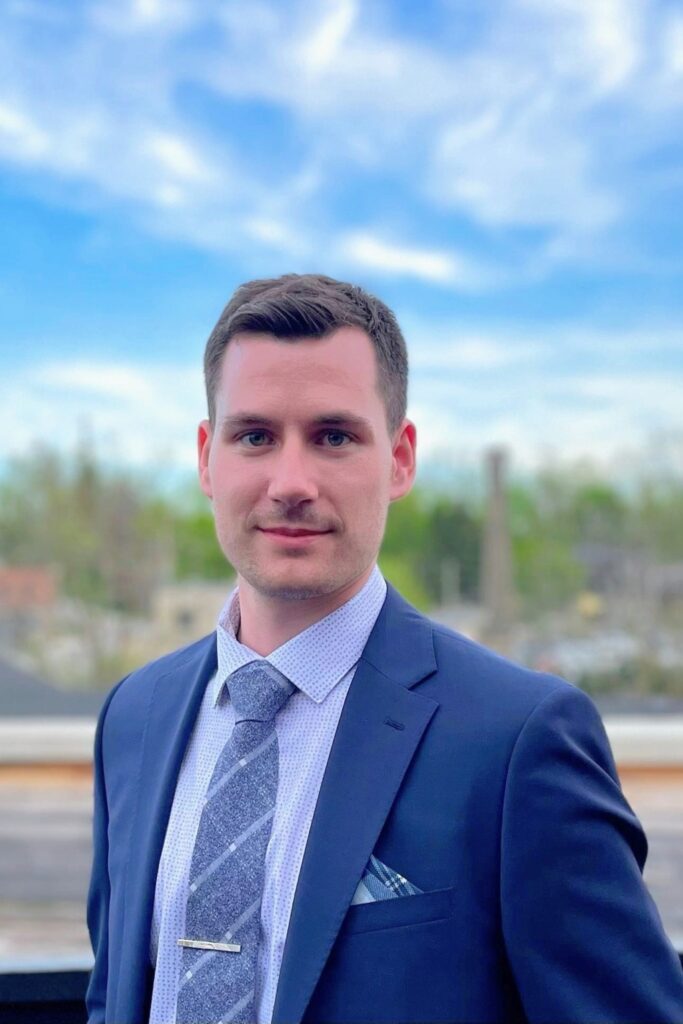
Kyle Jackson investigates the use of bacteriophages – viruses that infect bacteria – to ease the inflammation of patients with inflammatory bowel disease (IBD): as an alternative or adjunctive therapeutic approach to conventional strategies.
Those with Crohn’s disease, a type of IBD, have a predisposition for chronic inflammation in their gut, otherwise known as colitis. Jackson’s research dives into targeting specific E coli species that are well-recorded to be elevated during active flare ups. Eliminating these bacteria, he explained, would combat the severity.
There is no universal treatment strategy for IBD, only strategies to reduce the overall immune system’s response.
Canada unfortunately has one of the highest incidences of inflammatory bowel disease in the world. We’re going to need to develop targeted treatment strategies that can eliminate the key drivers of that inflammation, thereby reducing the actual severity.
Jackson said the scholarship is a testament to the extraordinary outcomes that can come from cross disciplinary work – the research is a unique collaboration by supervisors Dr. Zeinab Hosseinidoust and Dr. Elena Verdú, linking together the department of chemical engineering, and the Farncombe Family Digestive Health Research Institute in the department of medicine, respectively.
The multidisciplinary nature of his work is close to heart. He referenced a quote that John Polanyi, Nobel Prize laureate, passed on to his dad: “the best way to win a Nobel Prize is to apply the knowledge that you have in one subject to another.”
“That is the keystone that I live by as a doctoral candidate,” he said.
